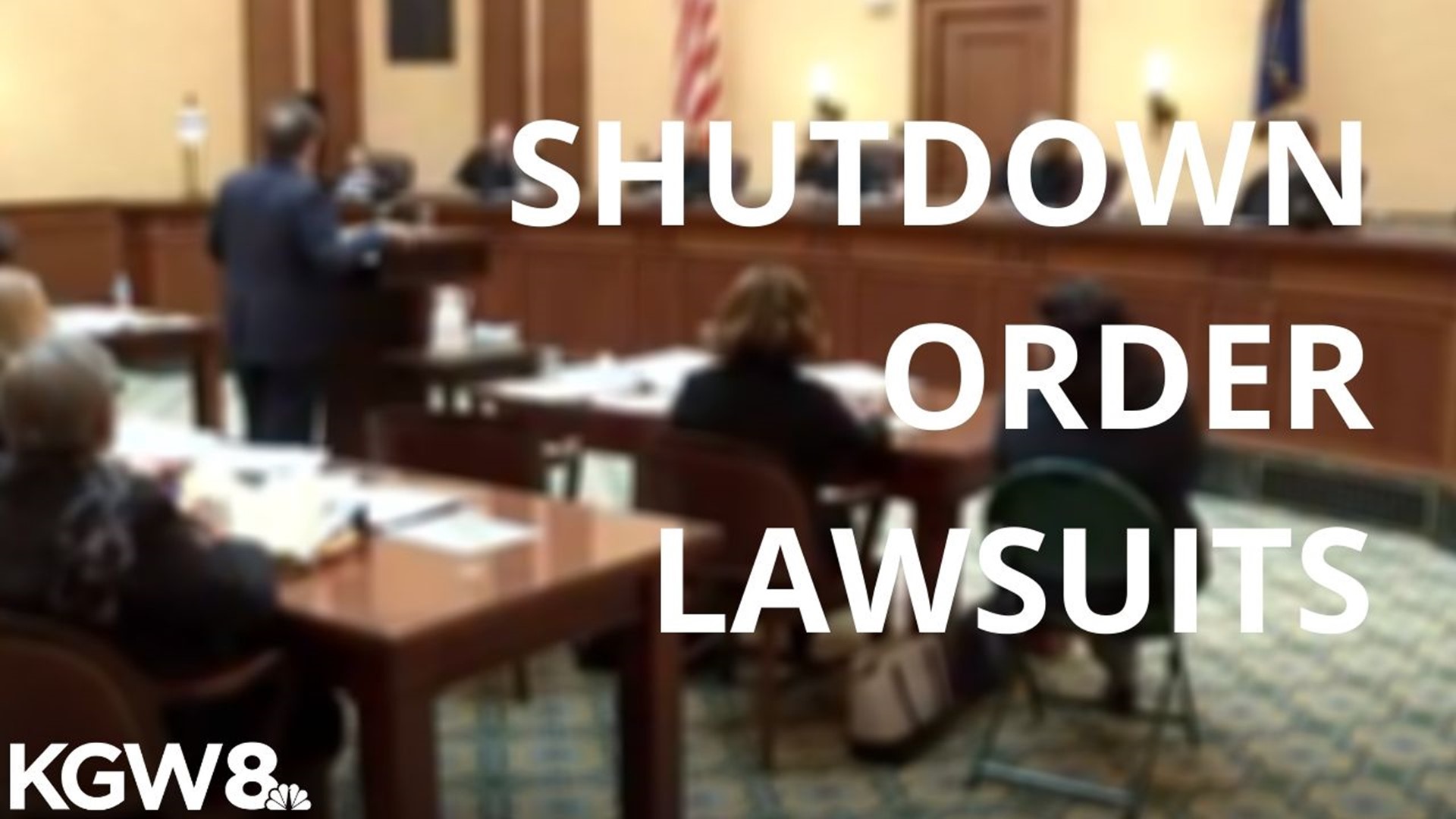PORTLAND, Ore. — For the second time in as many days, Oregon Gov. Kate Brown faced a legal challenge in court over the state’s coronavirus restrictions.
On Tuesday, U.S. District Judge Michael McShane denied an emergency injunction filed by several businesses alleging Brown's stay-home order violated their constitutional rights.
The decision turned the focus back to the Oregon Supreme Court, which is considering a similar suit filed by 10 churches across the state.
“We live in this constitutional republic where there's checks and balances,” said pastor Stephen Williams of the Bend Community Church, a plaintiff in the lawsuit filed in state court.
On Monday, a Baker County judge declared many of governor Brown’s orders “null and void” saying they had exceeded their 28-day limit as set out in state law.
“I think it is an important decision about Oregonians, how we can be responsible citizens but not being treated like children and wards of the government,” said attorney Kevin Mannix of Common Sense for Oregon.
RELATED: Oregon Supreme Court hits pause on judge's ruling; Gov. Brown's restrictions remain in place for now
The Oregon Supreme Court temporarily blocked the ruling until it could review the case. In the meantime, all of the governor’s restrictions will remain in place. The state’s high court asked lawyers to file arguments by Friday in hopes of providing a speedy decision on the emergency motion.
The looming battle in Oregon is just the latest example of legal challenges to coronavirus shutdown orders piling up nationwide.
Many governors and state leaders have found themselves dragged into court as citizens and businesses are anxious to get back to normal.
“We saw the earliest challenges within days of the first emergency orders being adopted,” explained Lindsay Wiley, law professor at American University.
Washington Gov. Jay Inslee is facing several lawsuits, including one in federal court contending his stay-home order to prevent spread of the coronavirus has imposed “unacceptable tyranny.”
The governors of Illinois, Ohio, Michigan, Pennsylvania, Maryland are also facing legal challenges over their restrictions. California is facing at least a dozen lawsuits.
Wiley said the closest counterpart to the Oregon case would be in Wisconsin where the state supreme court struck down its democratic governor’s stay-home orders on the grounds that his administration didn’t have the power to do so, without the input of the state legislature.
Wiley cautions, while the Wisconsin case may provide some legal direction, it is not a roadmap for Oregon.
“I think it would be a mistake though to expect the outcome to be the same in the Oregon case as the Wisconsin case,” explained Wiley. “There are some similarities but there are also some important differences in the state laws at issue and also some important political differences.”


